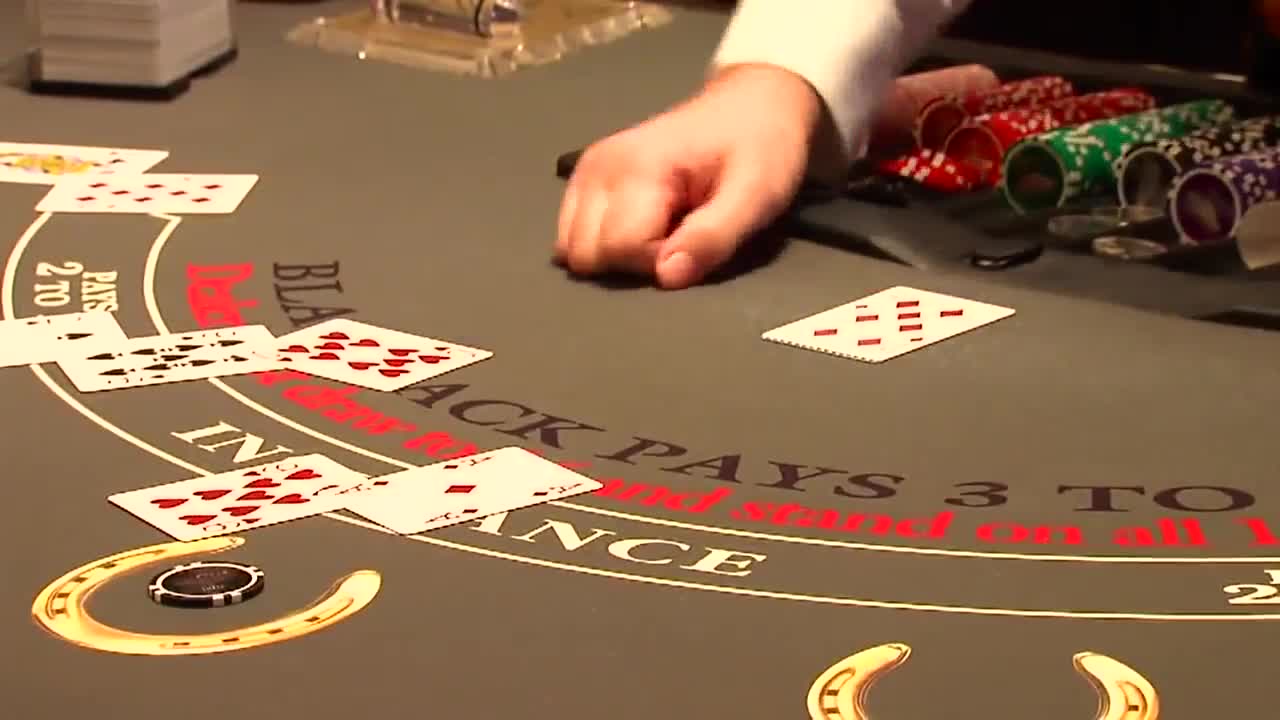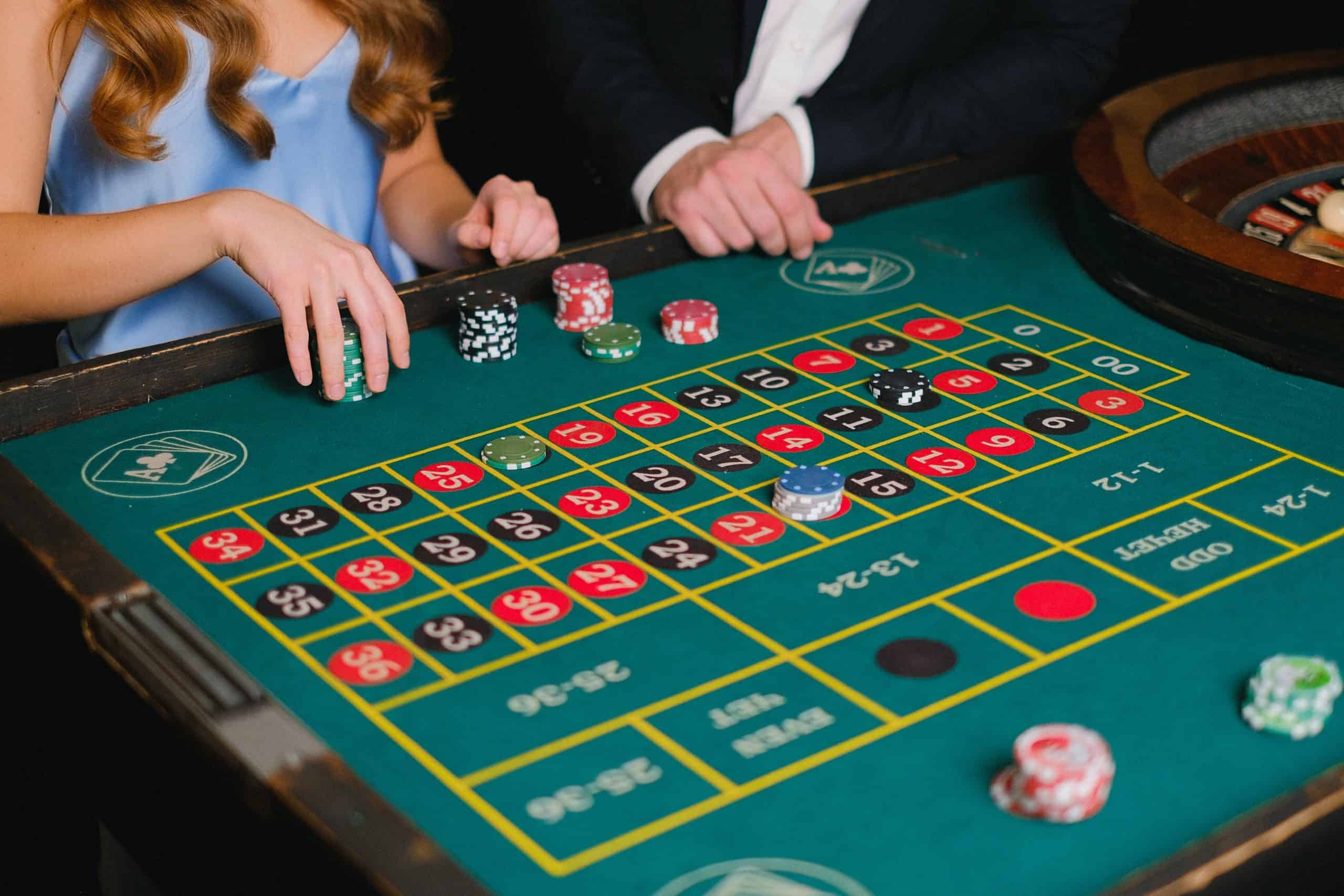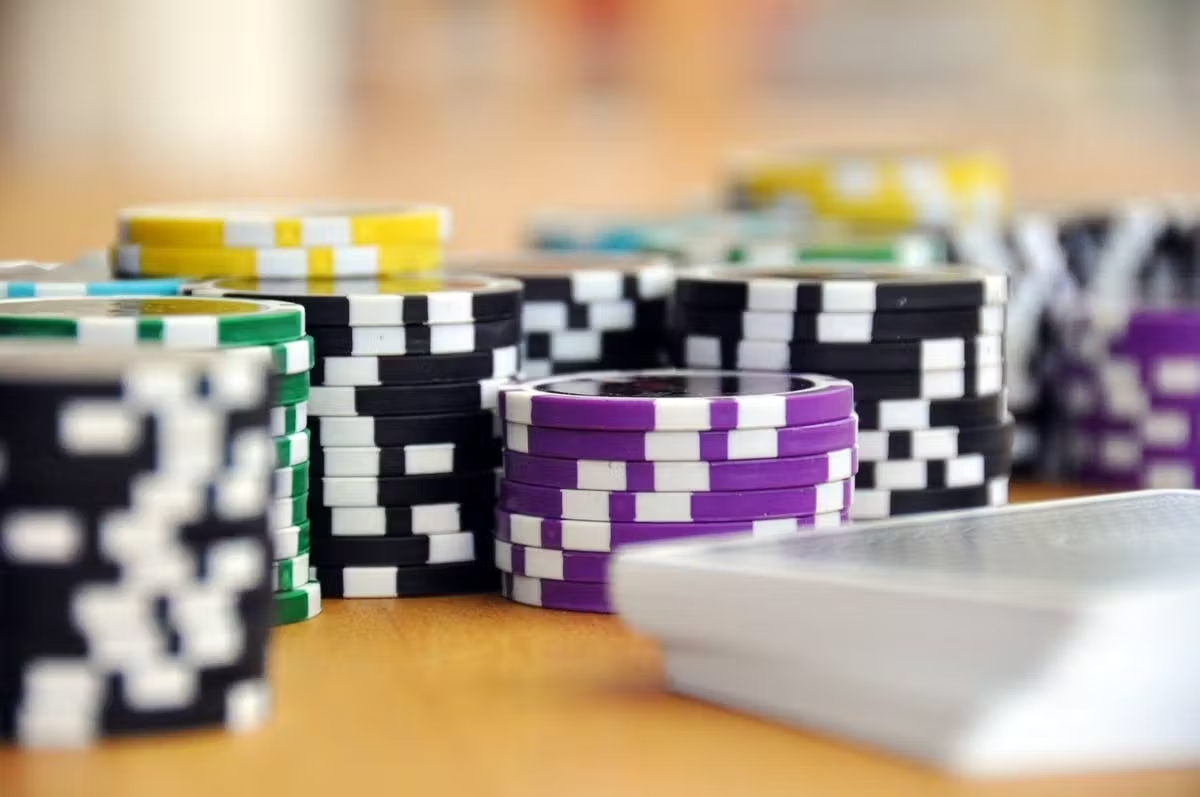
James oversees the content of our site and ensures the quality of every review and news article. With over 10 years of experience in the gambling industry, he has dedicated his career to exploring new trends and market analysis. James strives to make our articles accurate, understandable, and engaging for all readers. In his free time, James enjoys playing poker and has authored several books on poker strategy.
The odds make each game special in its challenge and excitement. Usually represented by “coefficients” or “house edge,” odds signal the built-in advantage the casino has, which means that the probabilities of winning are not equal.
Each of these odds is vital to comprehend in order for the player to maximize his chances. Whether a casual or experienced enthusiast, knowing which games have the best odds can make this entertaining experience well worth the investment. We will take you through the various games carrying the most favourable odds, as well as those best approached with caution.
We also recommend paying attention to:
Multiple Meanings of “Odds”

In gambling, the term “odds” can mean a couple of things depending on which context it is used, and all of which have their importance. Here, we shall explain the three main meanings: odds as probability, odds as payouts, and odds as house edge. Understanding “odds” is very crucial to mastering any casino game, but as easy as this may sound, things are not that simple. We explain each below.
Odds as Probability
When explaining odds as probability, we refer to the pure chance of winning versus losing. In such cases, odds will be seen in an “X-to-1” format, which expresses likelihood. Using the next example, if the odds of winning are 7 to 1, this would mean that for every seven losses, there should be one win. This ratio translates to a probability of winning of 12.5%.
Probability-based odds are especially useful for games with fixed rules, such as roulette or blackjack. In these games, the number of possible outcomes is fixed and known, so the odds of winning can be accurately calculated.
Odds as Payouts
Odds, in the form of payout, shift focus towards how much a player can expect to win when a bet is placed. In this case, “odds” refer to the amount a casino will pay out in relation to a player’s bet.
Example: a 5-to-1 payout would give $5 to the player for every $1 they bet; therefore, if they should win, they get only just that. In this case, the numbers are flipped from those of probability-based odds, focusing on payoff rather than probability.
In such cases, as in sports betting or slot machines, for instance, the payout odds present how a reward is possible in front of the risk. Of course, the high payout odds sound rather tempting, but they do come with a lesser chance of winning to create some sort of balance between risk and reward.
Odds as House Edge
Players and casinos refer to odds in terms of the house edge, which is a built-in advantage that ensures casinos remain profitable over time. Usually, unlike probability or payout odds, the house edge is expressed as a percentage that shows how much, on average, a player can expect to lose in the long term. For instance, if the house edge is 5%, then it means that on average, players will lose $5 for every $100 wagered.
The house edge is vital for a player who wishes to minimize his losses. Blackjack or baccarat are examples of games with a lower house edge that offer “better odds” from the standpoint of players—their chances of losing money through sessions are fewer. Conversely, fast bankroll-demolishing games are likely to have a high house edge, which can be viewed as an example of slot machines.
House Edge and RTP

The house edge is a percentage indicating how much, over average, the casino retains on each bet amount staked.
For example, if the house edge is 5%, then the casino takes 5 cents for every dollar bet and gives back 95 cents. That’s where the RTP comes in; it is basically the reverse of the house edge. It just shows the player how much they would return on average from their bets. In this case, an RTP of 95% means players can get $0.95 for every $1 spent.
Where the house always has an edge, the key to success lies in finding those games that have a lower house edge and a higher RTP. So blackjack or baccarat, for example, will ultimately stretch your bankroll further.
We also recommend paying attention to:
How to Calculate RTP (or House Edge)
RTP is calculated by multiplying the odds of winning by the total amount of money you get back from a $1 bet. As we found out, the process is a bit more difficult than it needs to be due to the conventional odds format.
To explain it in detail, we’ll use a hypothetical game with 3 to 2 probability chances and 5 to 4 payout odds as an example.
Here’s how you can figure out the RTP or house edge of a game using a few simple steps:
- Probability Odds to Percentage
Where a game gives its probability as “X to Y”, we can find the winning percentage as:
Y ÷ (X + Y). Example: if the odds are 3 to 2, then 2 ÷ (3 + 2) = 0.40 or 40%.
- Figure The Total Return on a $1 Bet
The total return is the sum of your payout plus the original stake. For a 2-to-1 payout, the return on a $1 bet would be $2 (payout) + $1 (stake) = $3.
If the payout isn’t in obvious terms, then divide to discover the return. A 5 to 4 payout for example, $5 ÷ 4 = $1.25, so the total return if one bets $1 is $2.25.
- Percentage by the Total Return
To calculate the RTP, multiply your win percentage (from Step 1) by the total return (from Step 2). For instance, if one win pays $2.25 and your winning chance is 40%, then: $2.25 × 0.40 = $0.90 or 90%. This figure means the RTP is 90%, leaving the house edge at 10% (100% – 90%).
- Add Multiple Payouts Together if Necessary
If there’s more than one possible payout in a game, you calculate its RTP and add each of them together. As an example, one game may offer a 39% probability of paying 1-to-1 with 78% RTP and a 1% probability of paying 12-to-1 with 12% RTP, and the total would appear as follows: 78% + 12% = 90%.
Best Games to Play at a Casino
Correctly chosen casino games make a huge difference in experience and winning possibilities. Though slots are the most popular choice for many players, they don’t have that good odds. In its place, table games like blackjack, baccarat, and video poker provide much more favourable outcomes for those who understand how to play them.
Variants of odds to be mentioned next:
- Video Poker: 0.05% to 2%
- Blackjack: 0.43 to 2%
- 1.06% – 1.24% in baccarat
- 1.36% to 1.41% for Craps
- Texas Hold’em Ultimate: 2.20%
We’ll examine what game has the best odds in a casino, focusing on their odds and why they stand out.
Video Poker
Video poker stands out for its favourable odds, but not all versions are created equal. Games such as Jacks or Better can offer a very low house edge of around 0.5% if you play with perfect strategy. Other variants include Deuces Wild and Joker Poker, which add some neat twists but perhaps pay according to different tables.
Many times in video poker, the payout depends on how the hands are ranked, along with the specific rules of the game. For example, a 9/6 Jacks or Better game paying 9:1 for a full house and 6:1 for a flush can return over 99.5% RTP, making it one of the best options for players who know the game.
The art of winning in that game is knowing which cards to retain and which ones to discard; hence, the good players make the odds work in their interests.
We also recommend paying attention to:
Blackjack
Blackjack enjoys a good standing as having the best and fairest odds at the casino due to its low house edge. Owing to the table rules, the house edge can go down below 0.5% if using a basic strategy.
What makes blackjack stand out among the other offers is that it’s one where players can make decisions affecting each and every hand outcome. It is this strategic element, along with rules that most often pay 3:2 for a natural blackjack, that makes it a top choice for those who want more control over their play.
However, the odds can change on what deck is in use, over the doubling rules and whether the dealer hits or stands on soft 17. Therefore, the best choice available would be to look for tables using less than the standard number of decks in use, while the payout rules are standard.
Baccarat
Baccarat is actually the easiest game to play, yet offering the best odds. There are three primary bets: Player, Banker, and Tie. The statistical best bet in Baccarat is betting on the Banker, for its house edge is only 1.06%, which counts in the 5% commission taken off the win.
It is marginally higher on player bets, at 1.24%, while the house advantage taken on Tie bets is steep – most typically in excess of 14%. There are no real complex strategies to consider; all the player needs to do is decide upon a side to bet on.
The house edge, particularly on the Banker bets, is extremely low, which makes baccarat a staple for advanced players who like to maximize the life of their bankroll.
Craps
At first glance, Craps might look difficult, but it is one of the most fun games to play once the player learns a couple of basic bets. The Pass Line and Don’t Pass are the easiest bets, and the odds are very fair: 1.41% and 1.36% house edge, respectively.
Pass Line bets win with a 7 or 11 on the come-out roll, while Don’t Pass bets win with a 2 or 3 and push on 12. Beyond that, there are literally dozens of betting possibilities, many with lousy odds. So, if you want to play smart, you’re wise to keep to the safer bets.
But one of the best things about craps is that you can take “odds” on your Pass or Don’t Pass bets, and those don’t have any house edge, making them even better.
Ultimate Texas Hold’em
With Ultimate Texas Hold’em, poker players compete directly against the dealer. The odds aren’t bad either. The house edge on the initial ante bet is about 2.20%, but experienced players can minimize it even more by playing smart.
This game also differs from traditional Texas Hold’em in the inclusion of rounds of betting, during which players can raise or check, depending upon the strength of their hand. Knowing when to go big early, or how to manage your bets in a hand certainly helps gain a bigger advantage and shrink the house edge. The paytable also allows for higher payouts on strong hands, allowing players to have the opportunity to win big with a Royal Flush or Straight Flush.
Worst Casino Game Odds

Now, we know what gambling game has the best odds in casino. And contrary to this, some casino games offer the player decent odds. Others will just burn your bankroll away in the quickest way possible, thanks to their high house advantage. Such games are really fun and flashy but will always keep one on the disadvantaged side as far as any win is concerned.
While some of them may give out big wins, the chances of getting them are usually very slim. If you want to play longer and have more favourable chances of winning, then the following are the games to avoid.
We also recommend paying attention to:
Keno
Keno is among the games with a house edge average often exceeding 25%. The game is lottery-like, with participants picking a series of numbers in hopes that they match the ones drawn.
While the promise of a big payday might be something that actually attracts players, the reality is that the chances of hitting such a big win are unbelievably slim. As a matter of fact, for 10 chosen numbers, it may take less than 1 in 8 million to match all 10.
Even hitting a few numbers is tough, and therefore Keno is one of the riskier choices. The house edge varies, but it is usually very high. Hence, big bets are not recommended if one desires to stretch his playing time.
Slot Machines
The primary appeal of slot games is their simplicity and fun, while the odds are not very attractive. The house edge for slots varies from 3% to well over 15%, depending on the specific machine and the game mechanics used.
Every slot game has a theoretical RTP, or Return to Player, which will tell you how much of your bet you could get back over time. It does not promise short-term wins. Some machines, with progressive jackpot slots being a common example, can have a far higher house edge because part of every bet goes toward funding the jackpot.
We recommend always checking the RTP if it’s offered. But remember that slot volatility can make prizes highly variable in size and frequency.
Wheel of Fortune / Big Six Wheel
Many think the Big Six Wheel, more commonly referred to as the Wheel of Fortune, is very good for beginners since the rules are straightforward, but it is actually one of the worst bets in the house.
The house edge varies by bet, but ranges from roughly 11% to 24%. Again, bets on the lower-value areas of the wheel, such as the “$1” bets, have a slightly better house edge, whereas the higher-value sectors, such as “$20,” have a much worse house edge.
Even popular live dealer versions of this game follow the same mechanics. Thus, these are equally unfavourable. This is pretty easy to play, but with a high house edge, you will probably lose more.
European roulette odds
Due to only one zero in European roulette, the odds are somewhat better than in its American brother. The house edge is 2.7%, way lower than American roulette at 5.26%.
But the chances are still against the casino because one has 37 numbers on the wheel and only one can be a winner. The players are at liberty to make different kinds of bets, such as straight-up, splits, and outside bets, but even then, the edge to the house would remain just the same.
European roulette is generally better than most of the casino games on this list. But it isn’t exactly the best option if one considers low-house edges.
FAQs
🎰 What casino game has the best odds?
Blackjack has the best odds, with a house edge under 0.5%, provided it is played with a basic strategy.
🎰 What is a casino edge?
The casino edge is the advantage built in and expressed as a percentage to guarantee casinos’ long-term profitability.
🎰 Do slots games have good odds?
No, they usually do not. Most slot machines have a high house edge of 3% or more, and it can be over 15%.
🎰 Where can I play the games with the best odds?
Look for a good online platforms that offers casino games with best odds like blackjack, baccarat, and others.
🎰 What are the best casinos for online games?
Among the best online casinos are Bet365, 888Casino, and LeoVegas because they offer appropriate and fair iGaming.

James oversees the content of our site and ensures the quality of every review and news article. With over 10 years of experience in the gambling industry, he has dedicated his career to exploring new trends and market analysis. James strives to make our articles accurate, understandable, and engaging for all readers. In his free time, James enjoys playing poker and has authored several books on poker strategy.

No comments yet. Be the first to comment!